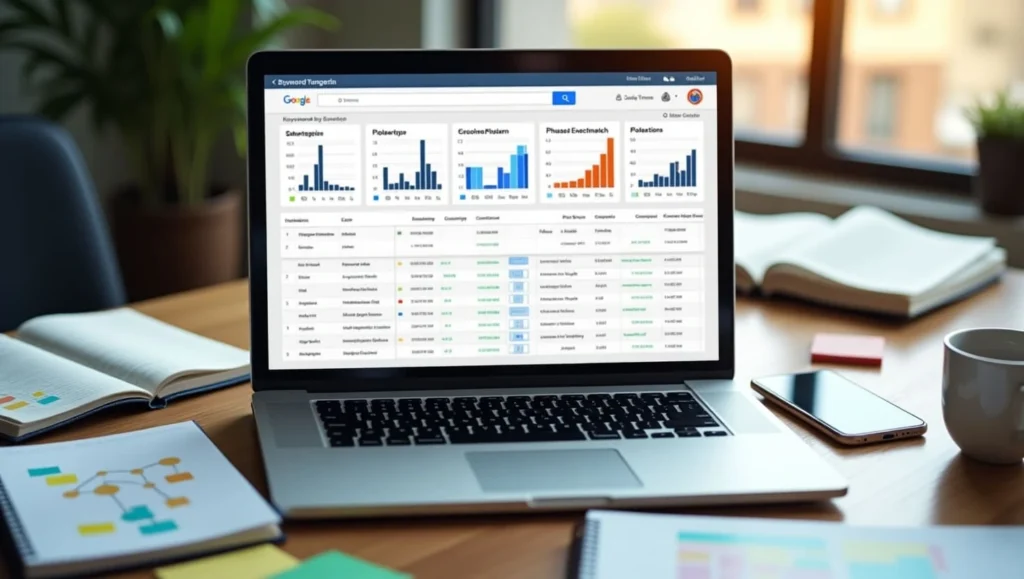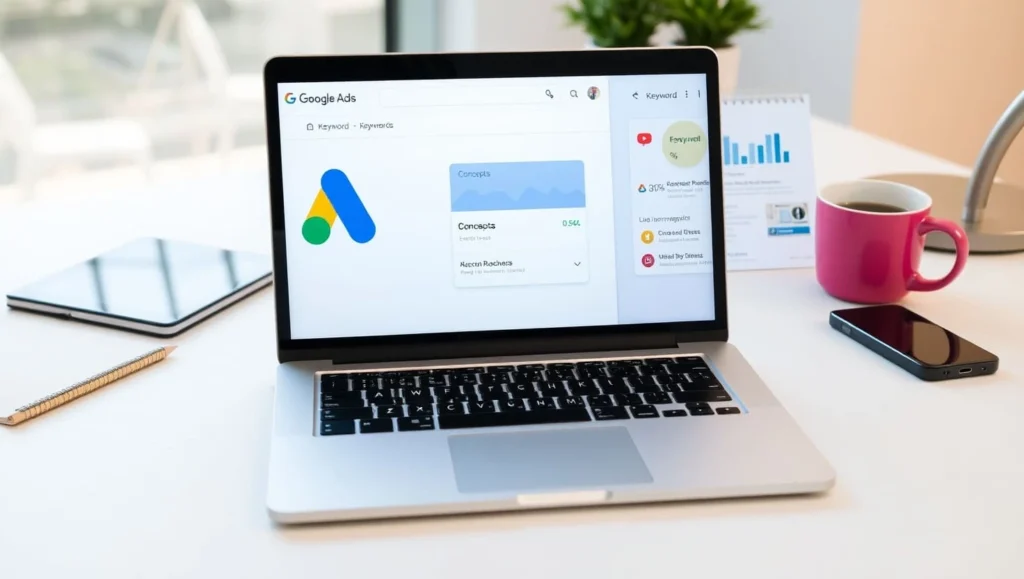Types of Paid Search Keywords and Why They Matter
In the world of digital advertising, paid search has become a powerful way to drive targeted traffic and generate quality leads. Whether you’re running Google Ads pay per click campaigns or managing PPC advertising strategies, one thing remains essential — the right search keywords.
But what are the different types of search keywords, and why are they so important in paid advertising?
This blog will walk you through the types of paid search keywords, their role in pay per click marketing, and how they impact your search engine advertising results.
Let’s dive in.
Also, don’t forget to check our blog:
Google Ads Strategy: A Complete Guide to Successful PPC Campaigns

What Are Search Keywords?
Search keywords are the terms people type into search engines like Google or Bing when they’re looking for something. In paid search advertising, advertisers bid on these keywords to show their ads in the search engine results pages (SERPs).
Choosing the right keywords in Google Ads helps ensure your ads appear in front of users who are actually interested in your product or service.
Without the right keywords, your pay per click ads can reach the wrong audience — wasting your ad budget and lowering your ROI.
Why Search Keywords Matter in Paid Ads
Keywords are the foundation of any successful search advertising campaign. Here’s why they matter:
They connect your ads to your target audience
They determine the relevance of your ads
They affect your cost per click (CPC)
They impact your Quality Score
They influence your ad placement in search engine marketing
Well-chosen keywords for Google Ads increase your chances of getting more clicks, conversions, and better returns on your digital advertising spend.
6 Types of Paid Search Keywords
Understanding the different types of keywords in digital marketing can help you run more effective PPC campaigns. Here are the main types you should know:
1. Broad Match Keywords
Broad match is the default match type in Google Ads. Your ad shows up when someone searches for your keyword or variations of it (including synonyms, misspellings, or related terms).
Example: If your keyword is digital marketing agency, your ad might show for online marketing company or internet marketing services.
Best For: Reaching a large audience and increasing visibility.
Watch Out: It can trigger your ads for irrelevant search terms if not monitored properly.
Also, don’t forget to check our blog:
Google Ads Strategy: A Complete Guide to Successful PPC Campaigns
2. Broad Match Modifier (Deprecated but Relevant)
This allowed more control than broad match by locking certain words in the phrase. Though Google removed this option, it’s useful to know for historical understanding.


3. Phrase Match Keywords
Your ad shows only when someone searches for your keyword phrase in the same order, though other words may appear before or after.
4. Exact Match Keywords
5. Negative Keywords
6. Branded vs. Non-Branded Keywords
Branded keywords include your company name (e.g., GoDigiKit digital marketing services). They’re great for capturing existing demand.
Non-branded keywords are general industry terms (e.g., SEO services, PPC digital marketing).
Using both gives you a balanced campaign that targets both warm and cold audiences.
How to Choose the Right Keywords
To succeed with paid search campaigns, you must pick keywords that align with user intent and your business goals. Here’s how:
Do Keyword Research: Use tools like Google Ads Keyword Planner, Google Trends, or other keyword search tools to find relevant, high-volume terms.
Consider Search Intent: Understand if users are looking to buy, learn, or compare.
Monitor Search Volume & Competition: Balance between high-demand and affordable cost per click.
Use Keyword Match Types Strategically: Mix and match exact, phrase, and broad types based on your goals.
Review Search Terms Regularly: Monitor your search campaign reports to find winning and losing terms.
Need help finding the best keywords for your business? Talk to a Google Ads expert now.
The Impact of the Right Keywords
Using the right search engine keywords can:
Boost your click-through rates (CTR)
Lower your cost per click Google Ads
Improve your ad relevance
Increase your conversion rate
Enhance your Quality Score
Grow your online advertising ROI
The wrong keywords, however, can drain your ad budget and reduce the effectiveness of your campaign.
That’s why understanding keyword match types, search volume, and user intent is critical in any search engine marketing strategy.
Final Thoughts
The success of your Google Ads and PPC advertising campaigns depends largely on your search keywords strategy. By knowing the types of keywords, how to use them, and how to optimize them, you can create highly effective, cost-efficient paid search campaigns that deliver results.
Want to maximize your ROI with expert keyword targeting?
Contact GoDigiKit Today for tailored Google Ads and PPC marketing services.
Or chat directly with our experts on WhatsApp.
Also, don’t forget to check our blog:
Google Ads Strategy: A Complete Guide to Successful PPC Campaigns
